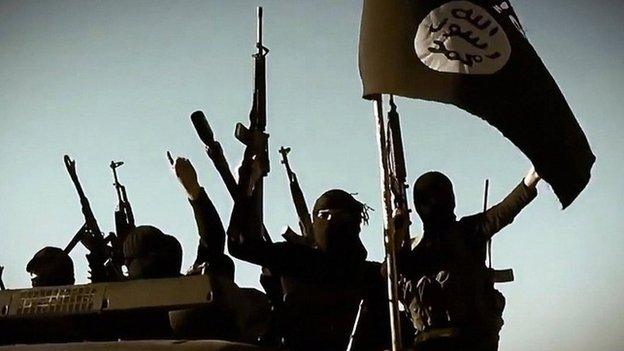New EU drive to remove extremist web content
- Published
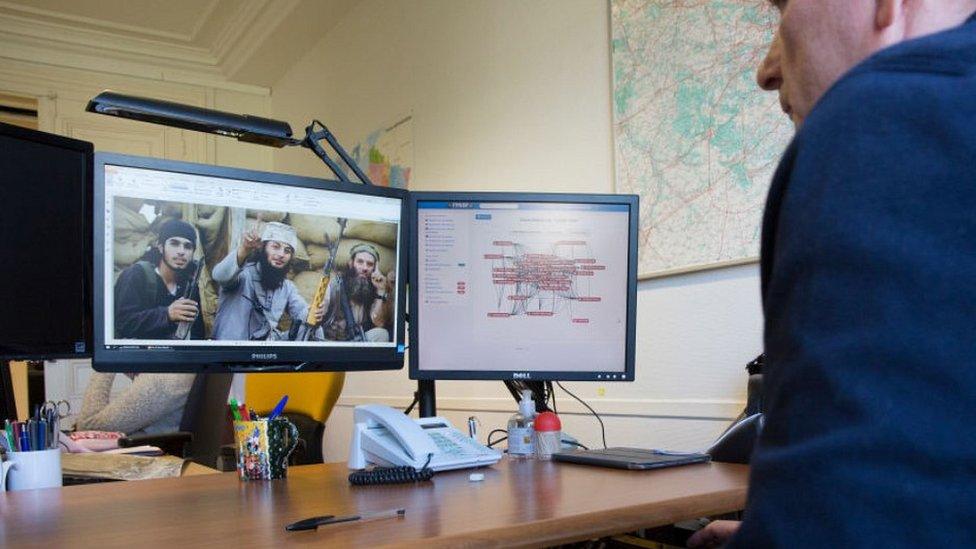
Monitoring jihadist websites is a huge task for police
EU ministers say the bloc needs to adopt a law this year obliging internet firms to remove extremist propaganda within an hour of it being reported.
The EU has been discussing such a regulation for more than a year, but the recent terror attacks in France and Austria have given it new urgency.
Interior ministers said the text must be agreed soon with the EU Commission and European Parliament.
They also urged more EU data-sharing and more systematic border checks.
Both German Interior Minister Horst Seehofer and EU Home Affairs Commissioner Ylva Johansson called for an agreement by Christmas on the new "regulation on terrorist content online (TCO)".
The ministers' joint statement called for a "rapid and effective instrument to counter terrorist content online within an hour or less of its being reported".
The Austrian authorities have found intelligence lapses which allowed the Vienna gunman, identified as a dual Austrian-Macedonian national, to slip under the police radar - yet he had served a jail term for seeking to join jihadists in Syria.
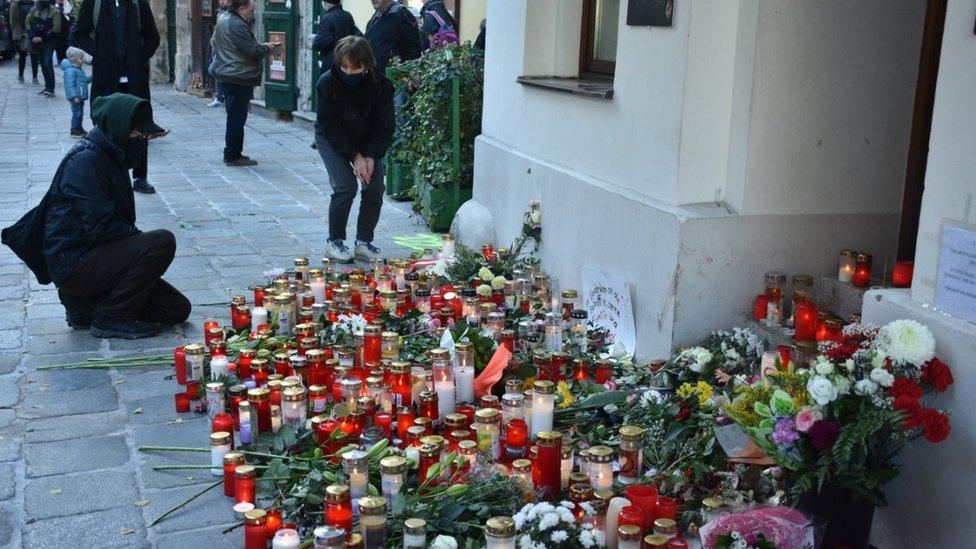
Vienna had been peaceful for decades before the 2 November shooting
The gunman opened fire on 2 November on people relaxing in a popular central district, killing four, before police shot him dead.
The investigation has established that Kujtim Fejzulai, 20, had been released early from jail in December, had tried to buy ammunition in Slovakia in July, and had also met German and Swiss Islamists in Vienna that month.
This week Austrian police raided more than 60 addresses allegedly linked to Islamist extremists and seized millions of euros of cash. Dozens of suspects are under investigation.
Ms Johansson said another priority must be tighter controls on the EU's external borders, so that terror suspects could be tracked more systematically.
Co-ordinating such checks between 27 member states has proven difficult, as most are in the passport-free Schengen zone where border checks are minimal.
Ms Johansson said a study by the EU border force Frontex last year found that 22% of those entering the Schengen zone had not been recorded in the digital Schengen Information System.

Read more on related topics:

The ministers' statement, external said the EU's police forces must "do their utmost to prevent foreign terrorist fighters, many of whom have combat experience, from entering the Schengen area undetected".
'Not against religion'
The statement also said "our fight against terrorism is not directed against any religious or political beliefs, but against fanatical and violent extremism".
Five years after the attacks Paris Mayor Anne Hidalgo and French PM Jean Castex laid wreaths to mark the attacks
It came as France mourned the 130 people killed by jihadists in Paris in November 2015.
French investigators have established that Brahim Aouissaoui, the Tunisian who fatally stabbed three people in a church in Nice last month, had only arrived in Europe in September. He was shot and wounded by police and is in hospital in the southern French city.
He had reached Nice after first getting to Italy by boat.
Investigators say they have found a picture on his phone of the Chechen man who beheaded a teacher near Paris two weeks earlier, AFP news agency reports. They also found pictures linked to the Islamic State group on his phone.
- Published20 October 2020
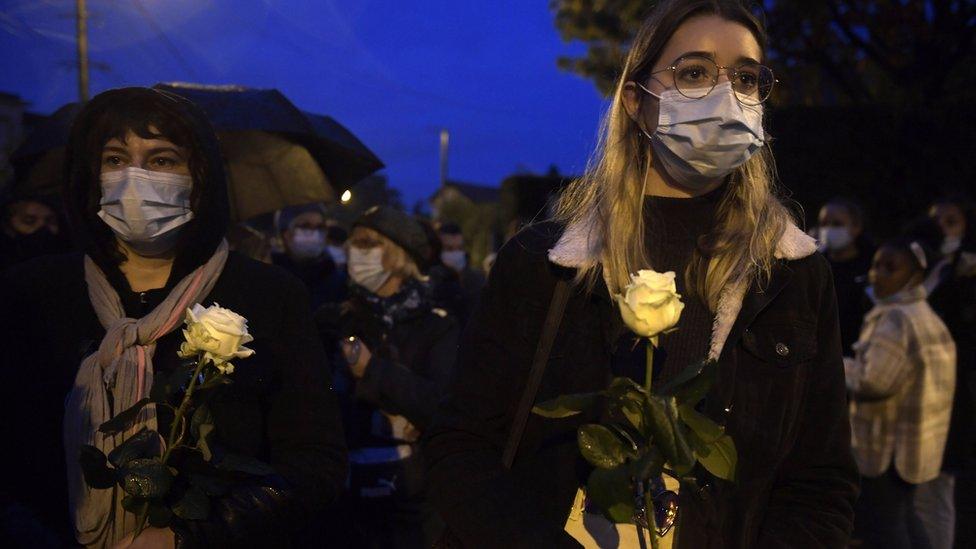
- Published13 November 2020
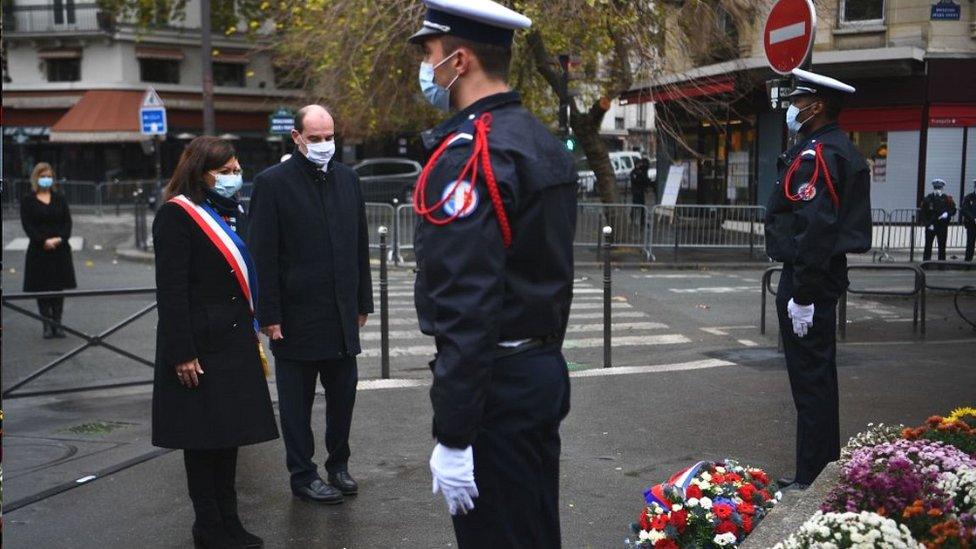
- Published4 November 2020
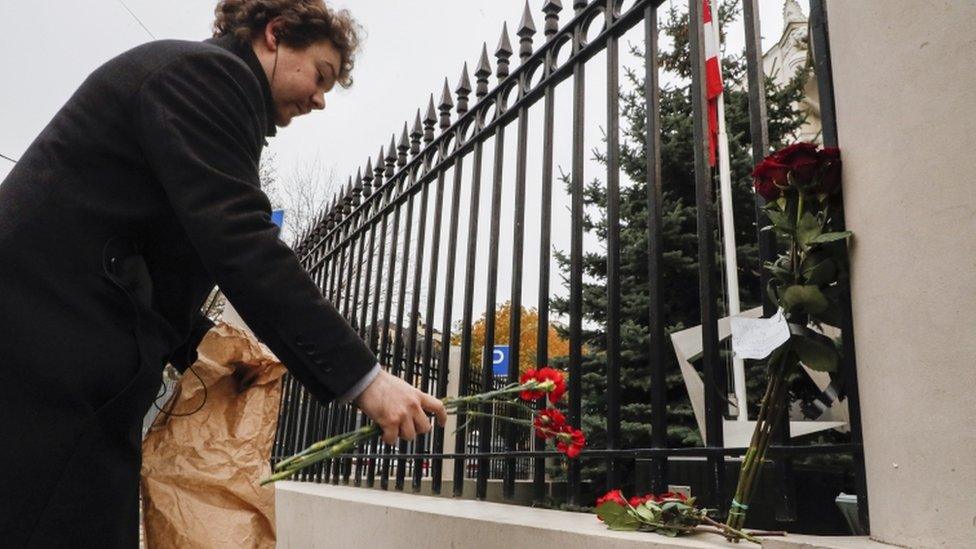
- Published6 November 2020
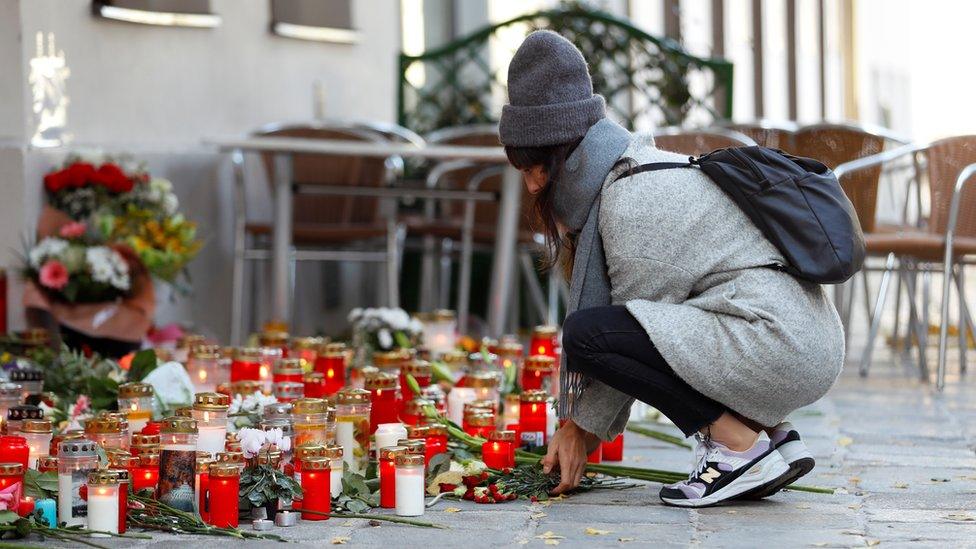
- Published20 August 2020
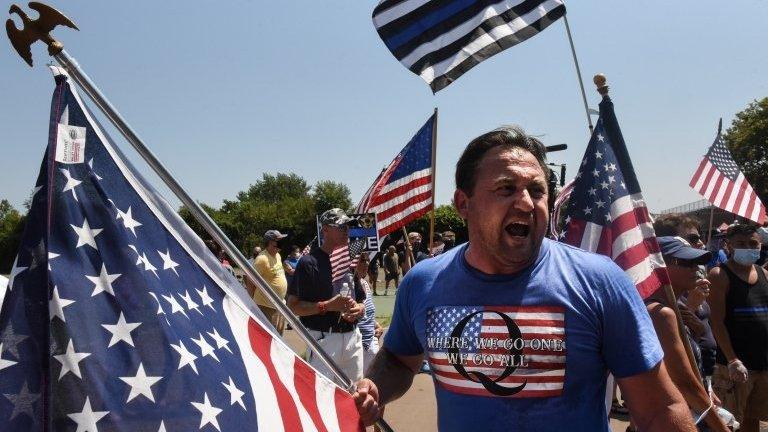
- Published17 April 2019

- Published8 July 2019
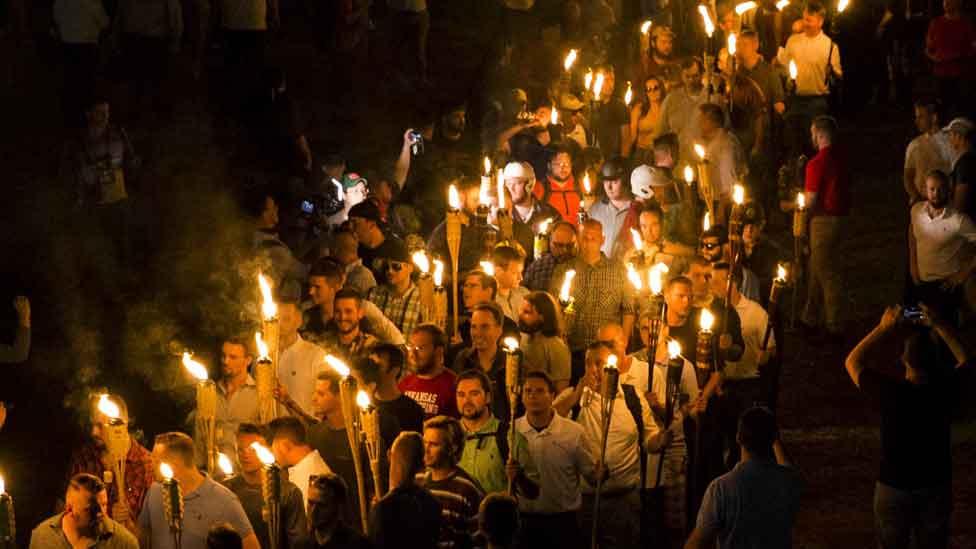
- Published30 March 2019
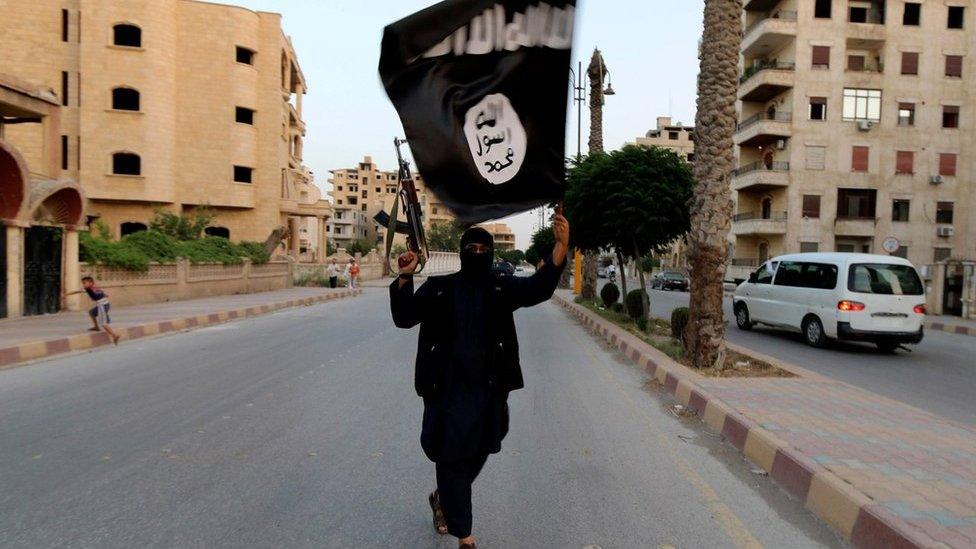
- Published19 September 2017
